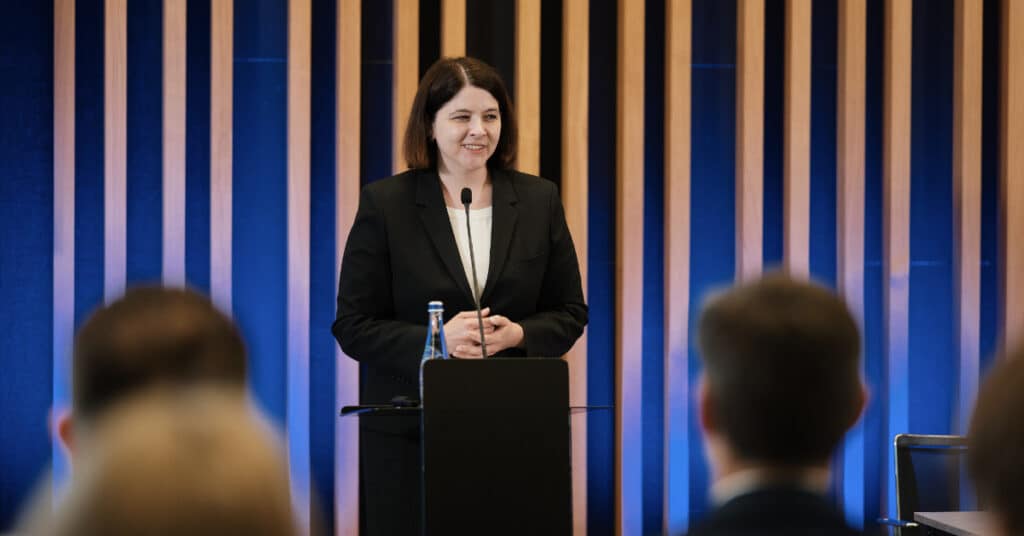The main institutional actors of the Fintech industry in Lithuania signed a Memorandum of Understanding (MoU) to confirm the National Fintech Guidelines for 2023-2028.
Among the signers of the MoU are the Ministry of Finance, the Bank of Lithuania, city development agency Go Vilnius, and several business associations and hubs, including ROCKIT, Fintech Hub LT, Infobalt, and BCCS.
Guidelines for five direction
The Guidelines, comprising five directions, aim to improve businesses’ conditions and continuously develop an open, transparent, and secure regulatory framework.

The Ministry of Finance oversaw the drafting of the Guidelines, acknowledging the strategic importance and potential of the sector to the country’s economy.
Lithuania: Largest fintech hub in EU
Lithuania is the largest Fintech hub in the EU by issued licences. It is one of the lowest-risk jurisdictions globally, according to the Basel AML Index.
The Fintech Landscape in Lithuania 2022-23 Report by Invest Lithuania highlighted that Lithuania now hosts over 260 Fintech companies that employ more than 7,000 people, representing a 19 per cent rise over 2021.
The five directions of the Guidelines are:
- Supporting the quality growth of Lithuania’s Fintech sector
- Attracting innovative Fintech solutions to Lithuania
- Lithuania as a Fintech centre of competence
- Lithuania as a safe and reliable jurisdiction
- Lithuania as an internationally renowned European Fintech hub.
In each direction, there is a specific project owner and several cooperating institutions.
According to the Minister of Finance Gintare Skaiste, the signing of this MoU and the division of responsibilities provides a clear roadmap for sustained excellence and growth
The Guidelines bring together professionals and experts from across Lithuania’s institutions, businesses, and associations. They define both national and international goals for the entire sector.
The Guidelines also set specific Key Performance Indicators (KPIs) for each of the five directions. These KPIs include an annual sector turnover growth rate of 30 per cent and 35M customers for Lithuania-licensed companies by 2028.
Simonas Krėpšta, Member of the Board at the Bank of Lithuania, says, “Today, more than 25M Europeans are benefiting from the financial services of companies licensed in Lithuania. This is both an acknowledgment of Lithuania and a significant responsibility. Recent events in the global markets have highlighted the importance of striking a balance between developing financial innovations and managing risks.”
“The new Lithuanian Fintech strategy underscores Lithuania’s ambition to become the highest quality Fintech hub in Europe,” says Krėpšta.










01
From telecom veteran to Dutch Startup Visa success: The Jignesh Dave story